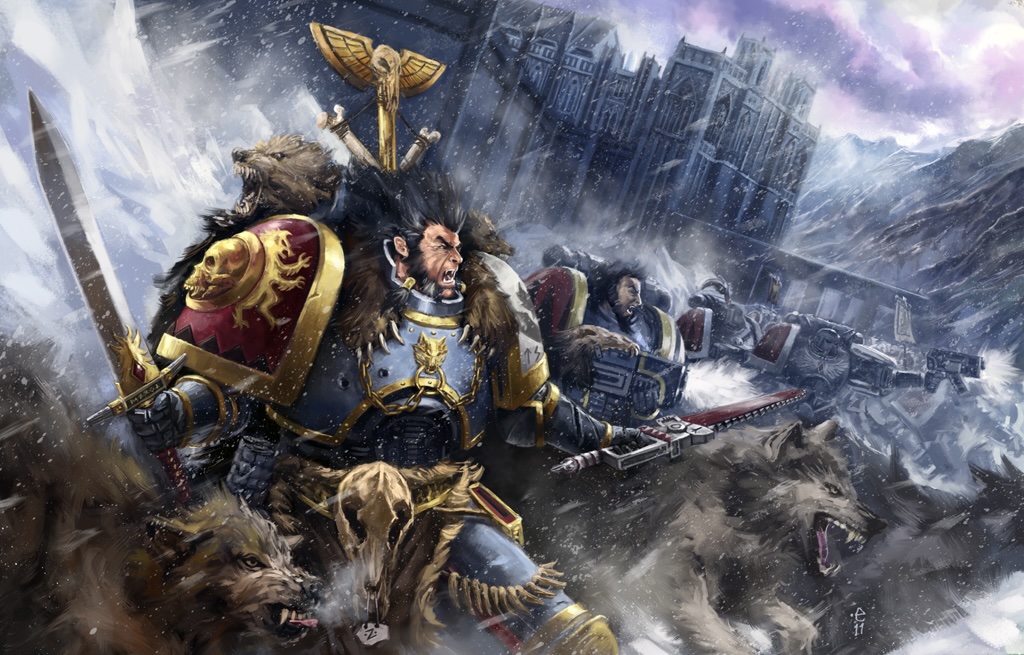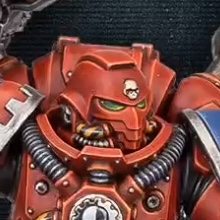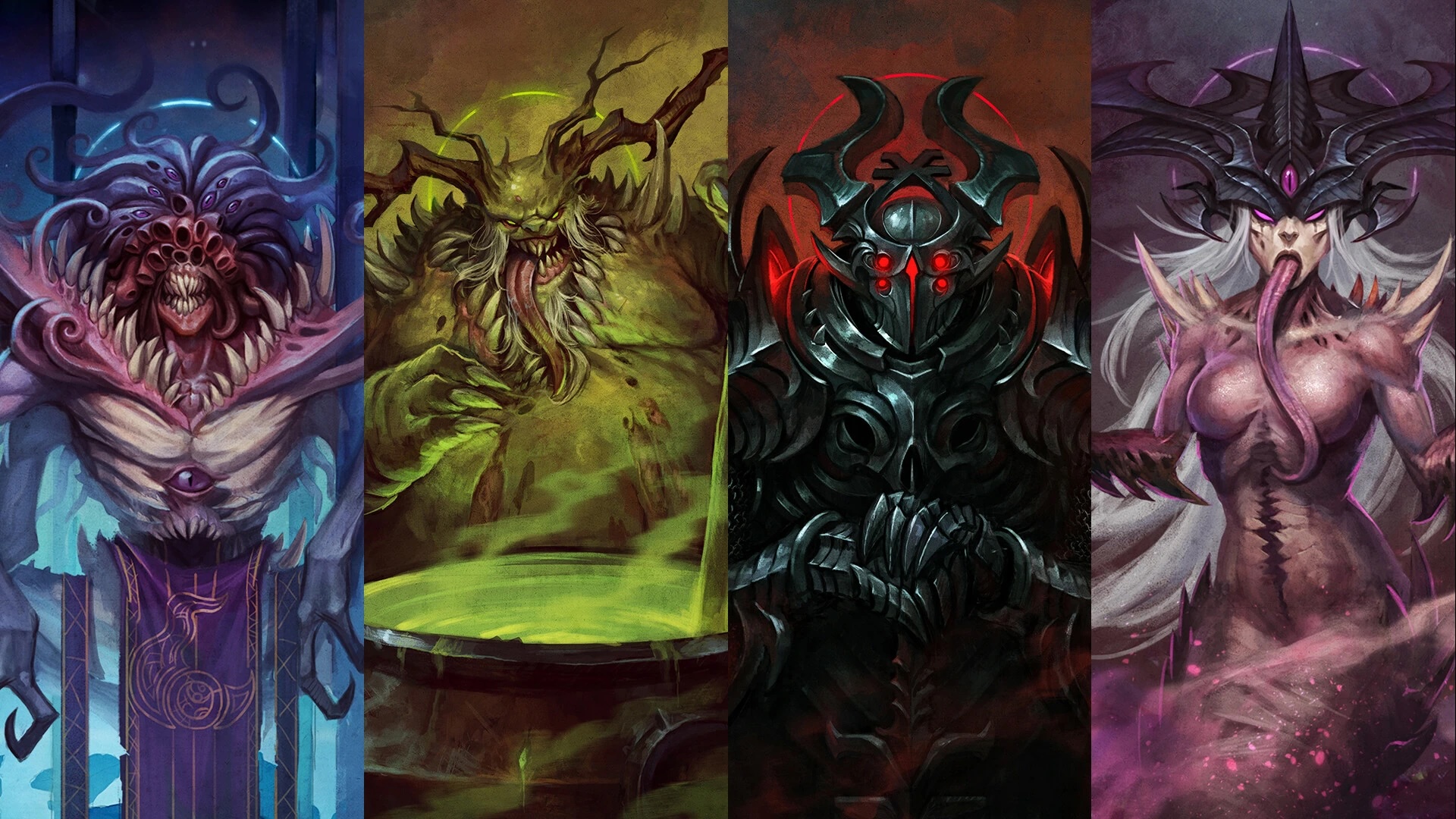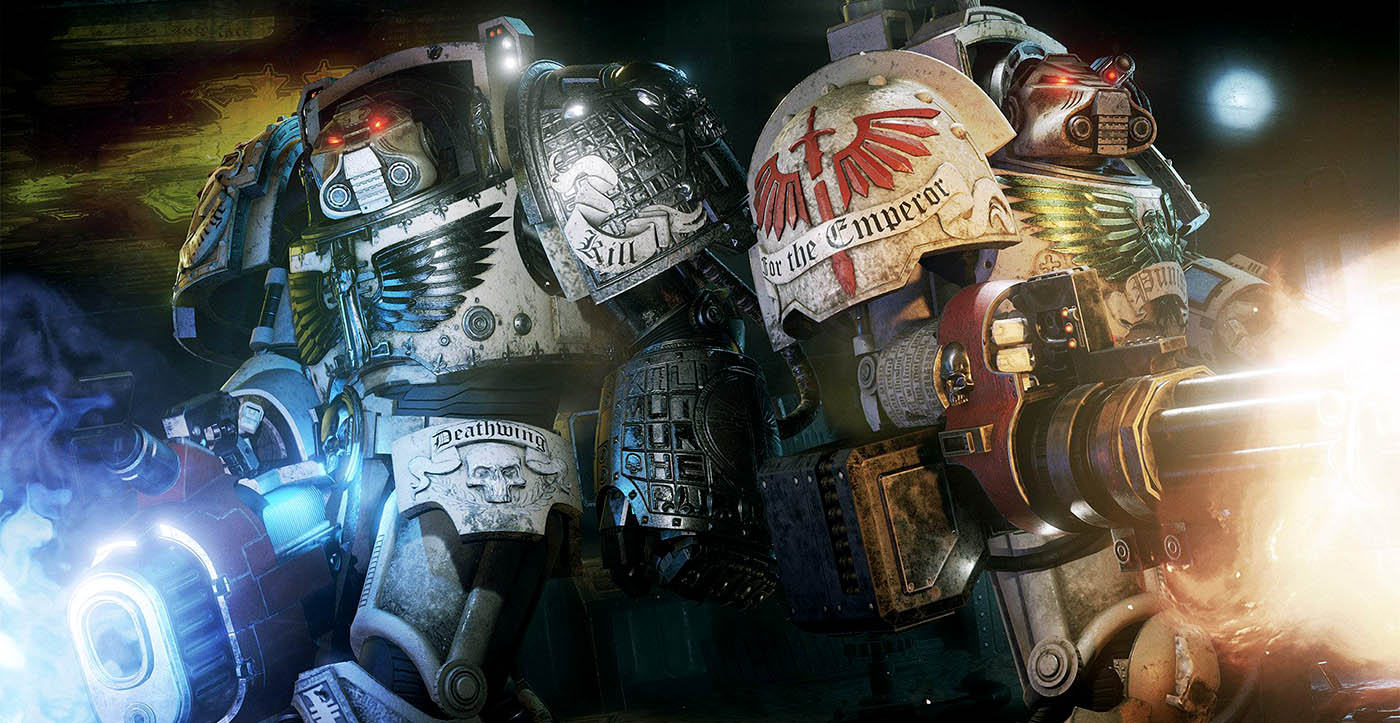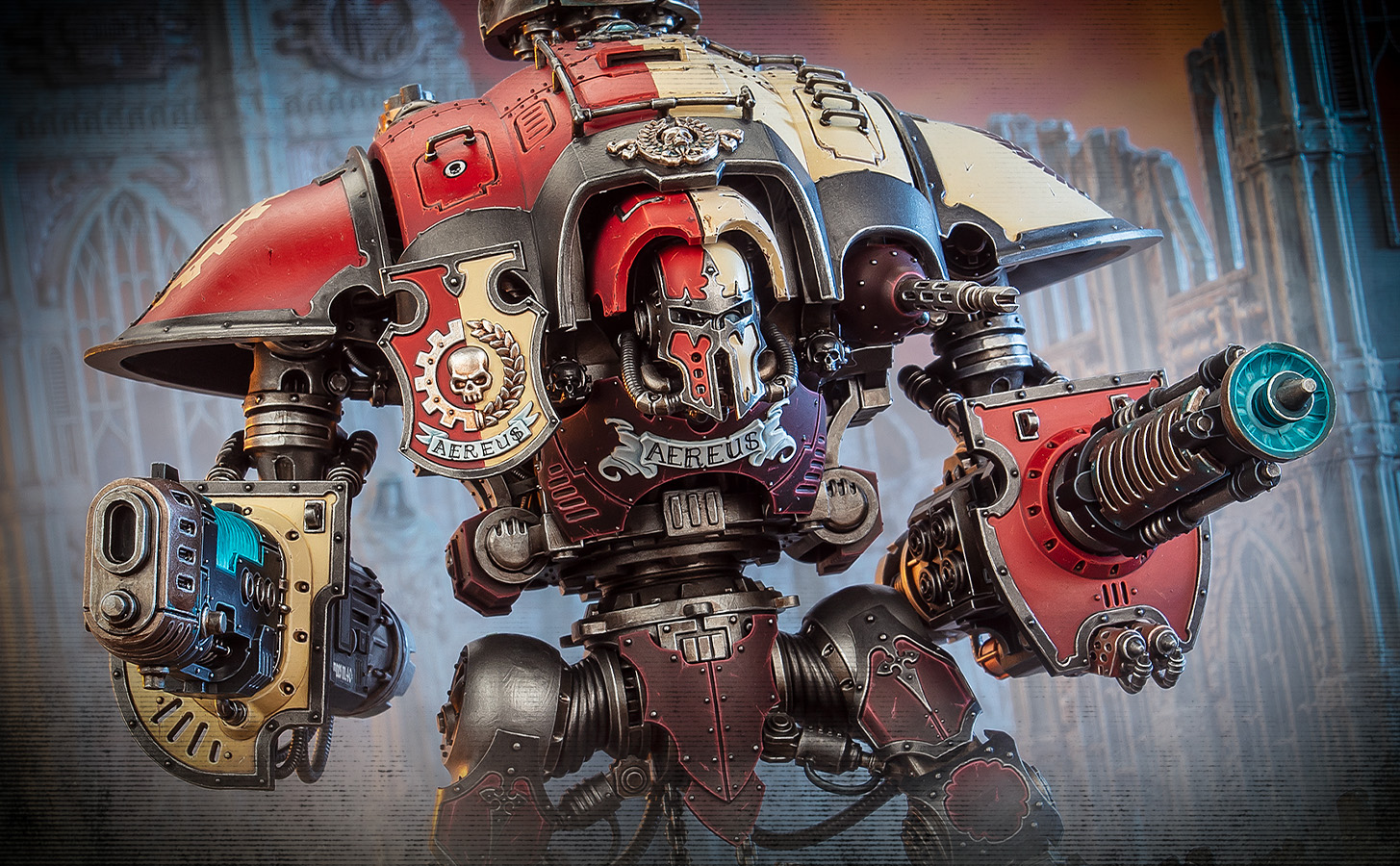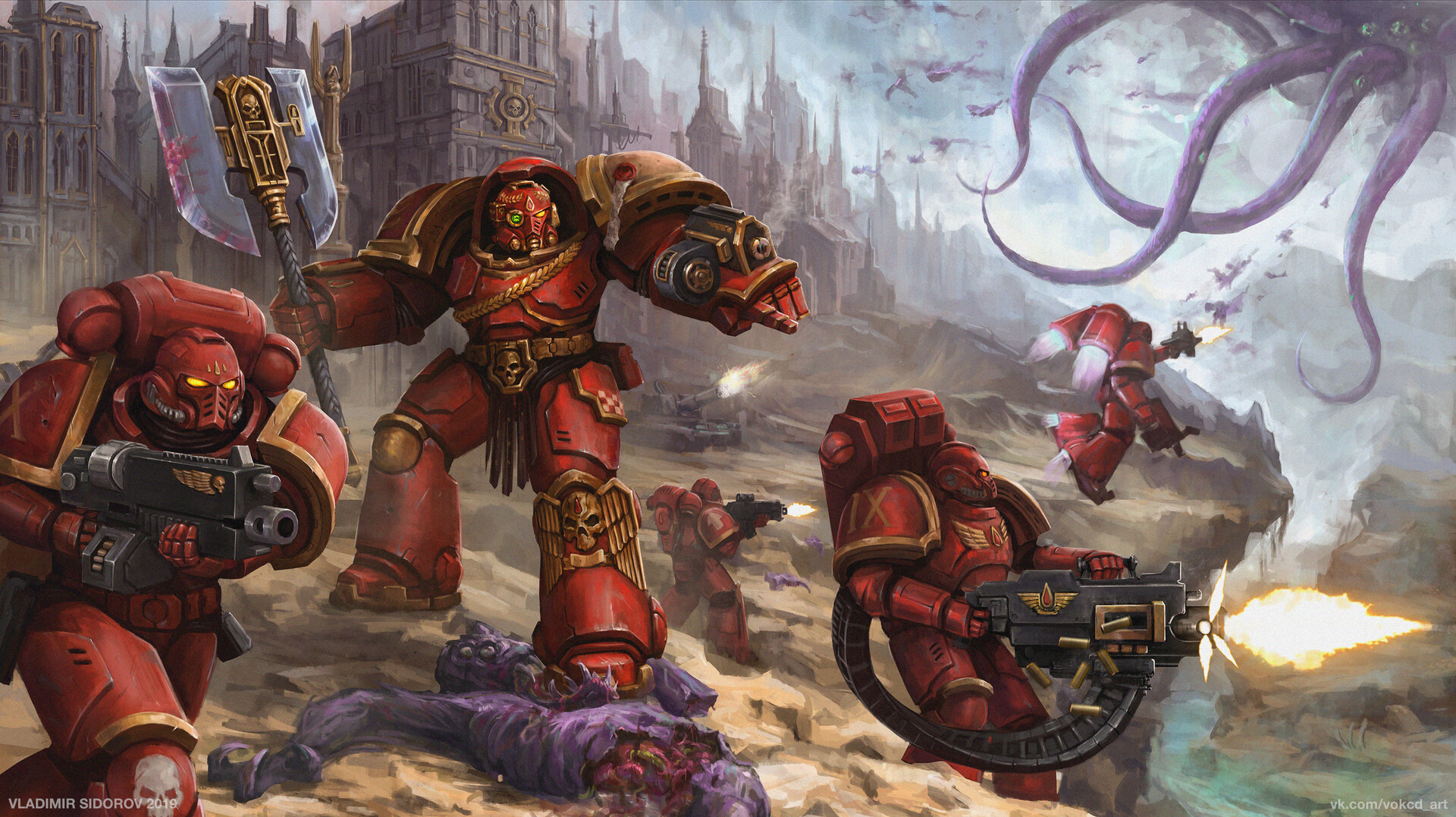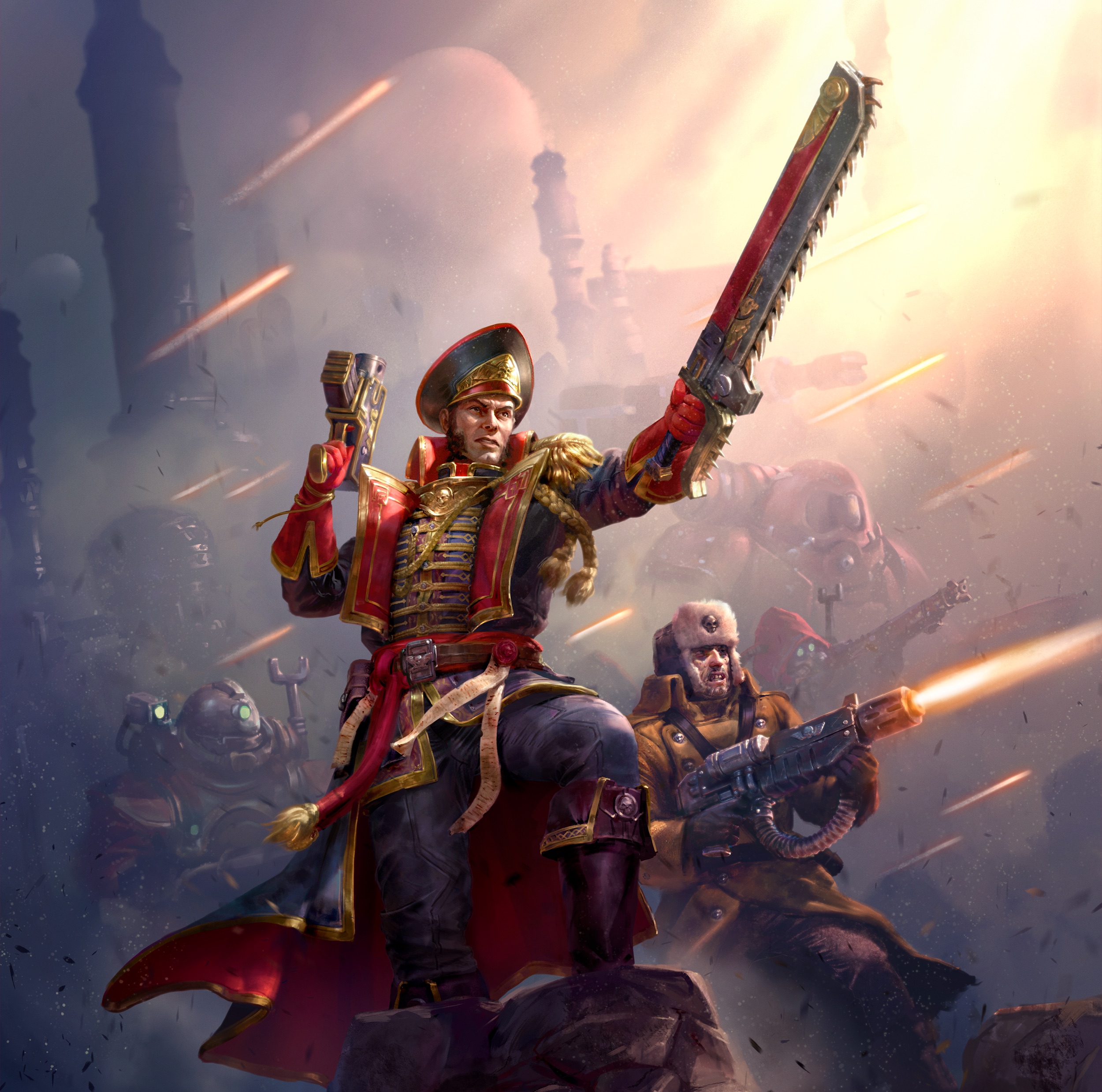Origins and the Influence of Fenris
Fenris is a world of lethal extremes – a death world of fire and ice that for most of the year is locked in frigid winter. Its oceans freeze solid, and tribes of human Fenrisians roam over ice from island to island as easily as if on land. But when Fenris’s elongated orbit brings it close to its sun, the brief summer is apocalyptic.
The planet’s crust splits with volcanic fury, the seas boil into tsunami, and whole landmasses are consumed and reborn in a time of fire and storm. In these few months the tribes must migrate or perish, battling one another brutally for new territory on the reshaped lands. This endless cycle of destruction and rebirth has forged a people as harsh and unyielding as the world itself – only the strongest survive Fenris, and only they are worthy to become Space Wolves.
On Fenris, war is life. Even from birth, a child is tested – legend holds that a newborn who fails to grasp the axe placed in his tiny hands is cast into the icy sea, for weakness risks the whole tribe’s survival. Constant warfare and deadly winters ensure Fenris’s people are ferocious, cunning, and ruthless. They tell sagas of colossal sea serpents and kraken, of ice trolls and massive wyrms beneath the mountains. Prowling the snows are packs of Fenrisian wolves – giant predators with eyes as keen as their fangs – that will devour the unwary. It is from these fierce tribes and unforgiving wilds that the Space Wolves recruit.
In the world’s northern pole lies Asaheim, the single continent spared the worst upheavals of summer. There stands the Fang, the Space Wolves’ fortress-monastery, like a colossal fang of rock that pierces the sky. To the Fenrisians, the Sky Warriors of the Fang are demigods, and joining their ranks is the highest honor – to become one of Russ’s chosen and fight in the final battle at the end of all things. Thus Fenris itself is the crucible of the Space Wolves’ savage valor: a world that kills the weak and hardens the strong, as intended by their primarch to keep his descendants fierce and able.
Leman Russ and the Founding of the Space Wolves
The Primarch Leman Russ – the Wolf King, the Lord of Winter and War – is the legendary sire of the Space Wolves. His saga began when the infant Primarch was spirited away by Chaos and found on Fenris as a feral child. A giant Fenrisian she-wolf raised him alongside her cubs, and Russ grew up running with the predators of the tundra.
As a youth, he was discovered by the human King Thengir of the Russ tribe after savagely defending his wolf pack from hunters. Russ was taken into Thengir’s hall, where he learned the ways of men and soon proved himself superior to any warrior. His laughter was as loud as his blows were mighty – he could uproot oak trees and wrestle great beasts to the ground. In time, Leman Russ rose to rule Fenris as king, earning renown so great that tales of the Wolf King reached the stars and the ears of the Emperor of Mankind.
When the Emperor came to Fenris, Russ’s pride compelled him to challenge the stranger rather than submit. He tested the Emperor in contests of eating and drinking, which Russ won in roaring good humor. Only in the third trial – combat – did the Wolf King finally meet defeat, knocked senseless by the Emperor’s powerfist after hours of wrestling.
Impressed, Leman Russ knelt and swore loyalty to the Allfather. The Emperor dubbed him commander of the VI Legion of Space Marines that had been crafted from his gene-seed. Thus the Space Wolves were unleashed on the Great Crusade, earning a bloody reputation as the Emperor’s executioners – a role Russ embraced with fierce joy. He and his Legion became known for savage close-quarters assaults and a ruthless zeal in punishing the Emperor’s foes.
In the Horus Heresy that followed, Russ remained the Emperor’s most loyal attack dog, unquestioningly carrying out dire orders – most infamously the burning of Prospero, where Russ brought his wayward brother Magnus to heel in fire and wrath. Though the Heresy ended in the Emperor’s internment in the Golden Throne, Russ’s saga did not end there.
In the aftermath, at a great feast on Fenris, the Primarch was seized by a mysterious vision. He gathered his closest warriors and vanished into the Eye of Terror on an unknown quest, leaving behind only a promise that he would return for the final battle. In his stead, his most trusted lieutenant Bjorn the Fell-Handed became the first Great Wolf (Chapter Master) of the Space Wolves.
To this day, Leman Russ’s bold spirit and thunderous legend guide his sons – every Space Wolf fights with the Primarch’s name on his lips and the certainty that Russ watches from the halls of the gods, awaiting the Wolftime of prophecy.
Chapter Structure and Traditions
Defiant and proud, the Space Wolves Chapter has always marched to the beat of its own drum. After the Heresy, when Roboute Guilliman imposed the Codex Astartes to standardize the Space Marines, the sons of Russ bristled at the thought of being chained to another’s rules. Russ himself had refused to break his Legion into smaller Chapters, managing to avoid division beyond a single ill-fated successor Chapter (the Wolf Brothers, who soon collapsed from mutation).
The Space Wolves thus retained a unique organization. They eschew the Codex’s strict company structure and instead field Great Companies – twelve mighty hosts led by Wolf Lords, each a force equivalent to a small Chapter. The Chapter is led not by a conventional Chapter Master but by the Great Wolf, the most esteemed of the Wolf Lords, who commands in the spirit of Leman Russ as a warrior-king.
This hierarchy is tribal and meritocratic; a Wolf Lord’s authority comes from his saga of deeds, and he answers only to the Great Wolf and the Allfather himself. The Space Wolves value individual initiative and courage over blind discipline, and their companies often range independently across the stars, crusading in Russ’s name. Such autonomy and fierceness have made the Wolves notoriously anti-authoritarian – they obey the Emperor and their own commanders, but have little patience for outside bureaucrats or edicts.
Within each Great Company, the Space Wolves organize not into sterile detachments but into packs of warriors bound by brotherhood and valor. Young Blood Claws – hot-blooded assault troops hungry for glory – fight under the guidance of grizzled Grey Hunters, who are seasoned pack warriors. The most veteran elite become Wolf Guard, sworn to the Wolf Lord as his chosen champions.
Unlike most Chapters, the Space Wolves do not have separate librarians or chaplains in Codex fashion. Instead they follow the old ways of Fenris: the storm-caller shamans known as Rune Priests fulfill the role of Librarians, wielding psychic powers drawn from Fenris’s primal spirit and preserving the Chapter’s lore and sagas.
The Chaplains and Apothecaries are combined into the mysterious Wolf Priests, gray-clad elders who tend both souls and bodies of the brethren. Wolf Priests brew potent bio-elixirs and herbal balms in place of standard medical implants, and they wander among Fenris’s tribes to test young warriors in feats of strength and skill, choosing the worthiest as aspirants for the Chapter.
The Space Wolves also make use of Iron Priests (Techmarines) who maintain their war engines, and each Great Company carries its honored Ancients – the dreadnoughts who slumber until the day of need. Every facet of the Chapter’s structure and ritual is informed by the fierce traditions of Fenris, from the Einherjar war-council of Wolf Lords and Priests (named for ancient heroes of myth) to the practice of forging each leader’s personal heraldry from Fenris’s rich mythology.
Though unconventional, the Space Wolves’ organization has proven brutally effective. In battle they fight like a pack of predators – each pack knows its role on the hunt, whether swift Thunderwolf cavalry outflanking the foe or Long Fang heavy weapons packs providing deadly covering fire.
Guided by the wisdom of their Wolf Priests and the visions of their Rune Priests, the Space Wolves combine savage ferocity with careful coordination. Outsiders may see only barbaric madness in their ways, but in truth the Chapter’s structure gives it the flexibility and cohesion of a well-honed pack. Bound by sacred tradition and brotherhood, the Space Wolves fight as one lethal force, united by the legacy of Russ and Fenris’s unforgiving creed.
Cultural Inspirations: The Norse Legacy
Everything about the Space Wolves echoes the ancient warrior cultures of Old Earth’s north – a deliberate mantle of myth that Russ and his sons have embraced. Even their homeworld’s name, Fenris, comes from Old Terran legend: Fenris (or Fenrir) was the great wolf of Norse myth destined to battle the gods at Ragnarok.
Most places on Fenris carry names from that same mythic heritage, and the Space Wolves themselves use titles like Jarl for their company leaders and refer to the Emperor as the Allfather, recalling the Allfather god of old (though to be clear, the Space Wolves do not worship the Emperor as a deity – to them he is the immortal warlord who leads humanity, not a god, and Russ’s father in gene and spirit).
The Chapter’s rituals and customs are steeped in this primitive flavor. They adorn their armor with runes and knotwork talismans, invoking the spirits of Fenris. Each battle-brother keeps a saga – an oral legend of his deeds – that the Wolf Priests and skalds of the Chapter recount around roaring fires. To earn a name of legend is a Space Wolf’s ambition, much as the heroes of Fenrisian saga-lore. Many take on kennings or epithets after great deeds (thus Ragnar of the Thunderfist tribe becomes Ragnar Blackmane, named for the black pelt of a wolf he slew, for example).
In temperament, the Space Wolves embody a mix of berserker fury and boisterous camaraderie reminiscent of ancient Viking marauders. Off the battlefield, they feast and drink with shameless gusto. The Great Hall of the Fang echoes with laughter, drunken brawls, and the verses of heroic songs. They consume prodigious quantities of mjød, a Fenrisian ale so potent it would dissolve a normal man’s guts.
Outsiders who witness these revels often see the Space Wolves as crude, ale-swilling barbarians lacking the discipline of more somber Chapters. But those who fight beside them learn the truth: the Wolves’ mirth and wild behavior is but another facet of their warrior culture, a way to bond packmates and celebrate life in the face of death. In battle they are anything but undisciplined – their senses are as sharp as a wolf’s, and they employ strategy and cunning beneath the veneer of fury.
A Space Wolf is as likely to crack a ribald joke or howl like a beast as he is to recite a battle-prayer. They honor strength, courage, and loyalty above all. The Chapter venerates Leman Russ not as an untouchable demigod but as the ideal warrior-king – rowdy, bold, and fiercely protective of his own. Their very language, full of growled consonants, old tribal terms, and names like Freki, Geri, Frostheim, and Valdr, reflects Fenris’s cultural stamp.
To fight as a Space Wolf is to carry a bit of Fenris into every war – to unleash the kraken of the seas, the thunder of Mjolnir, and the howl of Fenris upon the enemies of the Imperium. In short, the Chapter is the saga of the Norse Vikings writ in the stars, its warriors living as modern Einherjar whose valor will one day see them fight in the final Wolftime alongside their Wolf King.
Notable Battles and Campaigns
From the Great Crusade through the unending wars of the 41st Millennium, the Space Wolves have carved their legend in the blood of countless foes. Their most infamous early campaign was the Burning of Prospero (014.M31) during the Horus Heresy. Leman Russ led the VI Legion against the Thousand Sons, executing the Emperor’s sentence upon Magnus the Red’s sorcerous Legion.
The Space Wolves descended on Prospero with furious wrath – burning cities, shattering the traitor Legion’s defenses and slaughtering those who resisted. Though Magnus and a remnant of the Thousand Sons escaped into the Warp, Prospero was left a smoldering ruin. It was a bitter victory that birthed a hatred destined to last millennia.
In the Heresy’s later years, the Wolves were ambushed by traitor Alpha Legion forces at the Alaxxes Nebula, suffering heavy losses and preventing them from reaching Terra in time. Yet they still managed to fight in the closing stages of the war, Russ himself dueling Horus’s servants in vengeance. After the Heresy, the Space Wolves became the wardens of Fenris’s sector, forever vigilant against the traitors spilling from the nearby Eye of Terror.
In M32 the feud ignited at Prospero came full circle in the First Battle of the Fang. The daemon-Primarch Magnus, still thirsting for revenge, led the Thousand Sons in a brazen assault on Fenris itself. With most of the Chapter lured away by Magnus’s sorcerous tricks, only a token force led by the venerable Bjorn the Fell-Handed remained to hold the Fang.
The fortress-monastery weathered a brutal siege. Magnus’s armies battered at the gates of the Fang and finally breached the outer defenses. Yet Bjorn and the few Space Wolves on-world fought a guerrilla defense with fearless tenacity, harrying the invaders in the Fang’s dark tunnels.
At the climactic moment, Bjorn (interred in his massive Dreadnought frame) personally battled Magnus within the Fang. He banished the Daemon Primarch back to the Warp with a mighty blow, even as the surviving Space Wolves returned in force to drive the Thousand Sons from Fenris.
Harek Ironhelm, the Great Wolf who had unwisely pursued Magnus’s bait, paid for his hubris with his life – struck down by Magnus before the daemon was banished. The First Battle of the Fang passed into legend, a testament to Space Wolf heroism and the undying enmity between the sons of Russ and the sons of Magnus.
Throughout the later millennia, the Space Wolves have fought at the forefront of some of the Imperium’s most desperate wars. In M41’s First War for Armageddon (444.M41), Logan Grimnar’s Great Company confronted the World Eaters Primarch Angron, who had emerged as a Daemon Prince leading a daemon horde. The Wolves, alongside a secretive brotherhood of Grey Knights, eventually defeated Angron and banished the Blood God’s armies, though at terrible cost.
Yet victory was soured when the Inquisition declared Armageddon’s human survivors tainted and ordered their execution or mind-wipe. Outraged by this callous purge, Grimnar refused to hand over those he had bled to save. In an event later called the Months of Shame, the Space Wolves actually came to blows with Inquisitorial forces, even enduring a blockade and attempted censure of Fenris itself.
Ultimately the Inquisition backed down in the face of the Wolves’ unyielding defiance, but the bad blood remains (many an Inquisitor still calls the Chapter recalcitrant, while the Space Wolves openly disdain the Inquisition’s authority to this day).
At the close of M41, the Wolves were drawn into the nightmare of the 13th Black Crusade. When Abaddon the Despoiler launched his massive assault from the Eye of Terror, the Space Wolves committed all twelve Great Companies to the war, fighting fiercely on Cadia and across the Segmentum Obscurus.
Logan Grimnar sought to not only defend the Imperium but also avenge the Chaos invasion of Fenris during the preceding years (for Magnus had again attempted to destroy the Chapter during the Curse of the Wulfen campaign – a conflict intertwined with the opening moves of Abaddon’s Crusade).
The Wolves fought with valor in that hellish war, and when the Great Rift burst open, sundering the galaxy, they did not falter. Some elements of the Chapter even joined forces with the reborn Roboute Guilliman – Wolf Lord Ragnar Blackmane and others answered the Primarch of the Ultramarines’ call during the crises of the Dark Imperium.
The saga of battles stretches on endlessly: from the Plague of Unbelief in M36 (when Wolves broke a heretic Cardinal’s siege of Fenris), to the Third War for Armageddon, to countless battles against Orks, Drukhari raiders, Tyranid hive fleets, and more.
Wherever the Space Wolves fight, they leave a tale of heroism and savage glory. Their history is one of triumphs against impossible odds – and even in their rare defeats, they make the enemy pay for every drop of Space Wolf blood in rivers of their own. Each battle is another verse in the song of the Space Wolves, a song that grows only louder and fiercer as the galaxy’s darkness deepens.
Rivalries and Enemies
Few Space Marine Chapters can claim to have as many bitter feuds as the Space Wolves. Foremost among their enemies are the Thousand Sons – the traitor Legion of Magnus the Red. The animosity between the Wolves of Fenris and the Sorcerers of Prospero dates back ten thousand years to the burning of Prospero itself, and the grievance has only festered over the millennia.
The Space Wolves see the Thousand Sons as arch-heretics who nearly damned the Imperium with their sorcery, while the Thousand Sons hate the Wolves for the near-genocide of their Legion and the banishment of their Primarch. Whenever and wherever the Wolves and the Thousand Sons encounter one another, the result is war to the knife.
This enmity has erupted in numerous clashes since the Heresy: from the revenge raid of the Thousand Sons on Fenris in M32, to the scouring of the Planet of the Sorcerers (the Thousand Sons’ current home in the Warp) in later ages. In the 13th Black Crusade, Magnus again crossed blades with the Space Wolves during the Siege of Fenris, and only by alliance with the Grey Knights and Dark Angels did Logan Grimnar manage to once more repel the Crimson King’s forces.
Another notorious conflict in the Space Wolves’ chronicle is with the Imperium’s own inquisitorial authorities. The Chapter’s aversion to overbearing authority has put them at odds with figures of the Inquisition and the Ecclesiarchy on multiple occasions. The most famous confrontation was after the First Armageddon War, when the Wolves protected the survivors of Armageddon from the Inquisition’s attempt to massacre or indoctrinate them.
Logan Grimnar’s stance – that the Imperium must honor those who bled for it, not punish them – led to open hostilities with Inquisitor Lord Karamazov and elements of the Grey Knights. Though outright bloodshed was largely averted, relations between the Chapter and the Inquisition remain frosty.
The Space Wolves have made it clear that if forced to choose between their oaths to the Emperor’s people and blind obedience to Inquisitorial diktat, they will choose the former. Such defiance has earned them a reputation as “dangerous deviants” in some halls of Imperial power.
Tensions have also existed with more traditionalist Space Marine Chapters. The most famous of these intra-Astartes rivalries is the Lion and the Wolf: a long-standing feud (half-serious, half-sincere) with the Dark Angels Chapter. It originated in a legendary duel between Primarch Leman Russ and Lion El’Jonson of the Dark Angels.
As the story goes, during a joint campaign the Lion slew a foe Russ had wanted to kill himself, so Russ punched the Lion, and the two Primarchs brawled for days until Russ yielded with laughter – only for the Lion to cold-cock Russ and leave in a huff. Ever since, when Space Wolves and Dark Angels meet, ritual duels or contests are often fought to “settle” the score (though in truth it never settles, as each side alternates victory and defeat).
These contests are usually friendly – a way to honor their Primarchs’ competitive spirit – and rarely spill actual blood. Still, outsiders are often alarmed to see two Loyalist Chapters coming to blows, not realizing it’s a matter of tradition and pride between the Angels and the Wolves.
Aside from the Dark Angels, some more Codex-adherent Chapters (like the Ultramarines and their successors) have clashed verbally or philosophically with the Space Wolves over their refusal to follow standard doctrine. The Wolves, for their part, are dismissive of “weak-stomached southerners” and “book-bound warriors” who lack the fire of Fenris.
Despite these frictions, the Space Wolves are loyal to the Imperium – they will fight beside other Adeptus Astartes readily against the true enemies of Man. But woe betide any ally who thinks to impose their will on the sons of Russ. The Space Wolves neither forgive slights nor bend the knee easily, and even among brothers they demand respect be earned in deed, not in title.
As a senior Wolf Lord once said of more straight-laced Space Marines: “We may share the gene-hero of old, but if they want my obedience, they can try to take it like a man.” In the grim darkness of the far future, the Space Wolves have the unusual distinction of being both among the Imperium’s fiercest champions and its most rebellious – loyal hounds that occasionally bite the hand that feeds, if that hand forgets that the wolf is a creature of its own will.
The Curse of the Wulfen and the Dark Imperium
Among all the gene-sons of the Primarchs, the Space Wolves carry a singular genetic curse – a primal flaw in their gene-seed called the Canis Helix. This genetic strain bestows Space Wolves with heightened predatory senses and strength, but if uncontrolled it can warp them into savage man-wolf abominations known as the Wulfen.
From the moment a Fenrisian aspirant drinks from the Cup of Wulfen and takes the Canis Helix into his body, he must wage an inner war against the beast within. Most Space Wolves master this fury during their initiation – those who fail transform almost immediately during the trials and are put down or exiled.
But the Curse of the Wulfen never truly departs. It lurks in the blood of every Sky Warrior of Russ, a feral shadow forever testing its bearer’s will. In battle, amid bloodlust and battle-frenzy, a Space Wolf must hold tight to his humanity. Should he lose himself entirely to the thirst for slaughter, the Canis Helix can overtake him, twisting his form into a hulking, wolven mutant that knows no reason – only the joy of the kill.
In ancient times, Leman Russ and his Rune Priests managed to control this curse to a degree, but it could not be purged. Indeed, during the Burning of Prospero, an entire formation of Space Wolves – the legendary Thirteenth Company – harnessed the Wulfen curse and chased the fleeing Thousand Sons into the Warp, vanishing from Imperial records for millennia. These lost warriors were long thought dead or trapped forever in the Immaterium. Their memory became a dark secret, spoken of only in hushed tones within the Fang – a reminder of what even the greatest of Russ’s warriors could become.
In late M41, the Curse of the Wulfen revealed itself again in dramatic fashion. As the 13th Black Crusade loomed, signs and portents led Logan Grimnar to dispatch forces in search of the lost Thirteenth Company. Through warp-tangled coincidences, packs of Wulfen began emerging from the warp rifts across the galactic north, having survived for ten thousand years in the Eye of Terror’s twisted realms.
These feral brethren, still loyal but transformed into bestial forms, returned to the Chapter at last. Their reappearance in the Curse of the Wulfen campaign (999.M41) threw the Chapter into turmoil. While many Space Wolves saw the returned Wulfen as a miracle – loyal brothers come back from the long darkness – elements of the Inquisition and other Imperial forces viewed them as abominations.
The Chapter found itself fighting not only the daemonic schemes of Magnus on Fenris, but also the suspicion of supposed allies who learned of the Wolves’ genetic curse. Ultimately, Logan Grimnar chose honor over secrecy: the Space Wolves openly deployed the Wulfen in battle to aid the Imperium, proving their loyalty in blood and fire.
In one notable incident, Wolf Lord Ragnar Blackmane led a strike force (including Wulfen) to stop a Chaos ritual on the ruins of Prospero in M42, and uncovered several surviving members of the original 13th Company still fighting after all these centuries. These veterans – some 200 battle-brothers under a warrior named Bulveye – were brought home to Fenris at last, their curse tempered by the Chapter’s Rune Priests and Wolf Priests as much as possible.
The Space Wolves now strive to integrate the Wulfen into their Great Companies as elite shock troops, while preventing their curse from overtaking others. It is a tenuous balance, for the Curse of the Wulfen still flows in all Space Wolves. Even the Primaris Space Marines introduced to the Chapter in the wake of Guilliman’s Indomitus Crusade are not immune – tests by the Wolf Priests confirmed that Primaris Marines of the Space Wolves gene-line can fall victim to the same curse.
This revelation was met with grim acceptance by Logan Grimnar; even in the dawn of the Dark Imperium, Russ’s genetic legacy remains a double-edged sword. As the Great Rift yawns across the galaxy and daemon hosts pour forth, the Space Wolves stand on the front lines of the Imperium Nihilus (the dark half of the sundered Imperium), cut off from Terra by storms and surrounded by enemies.
They have suffered dearly – Fenris itself bears scars from Magnus’s onslaught, and many heroic Wolf Lords and warriors fell in those wars. Yet the sons of Fenris fight on with undimmed fury, calling upon the strength of their legendary Primarch and even the cursed power of the Wulfen to smite the foes of mankind.
In this age of endless night, the Space Wolves exemplify the brutal, stubborn hope of the Imperium: though beset by inner daemons and outer horrors, they refuse to submit. They are the Wolves that stalk the stars in mankind’s darkest hour, and not even the damnation of their gene-curse will keep them from killing the enemies of the Allfather.
Leman Russ’s Prophecy and the Future of the Space Wolves
Before he vanished, Leman Russ left his Chapter with a final prophecy – a hope to cling to in the worst of times. He vowed that he would return for the final battle at the end of days, the time he called the Wolftime. In Space Wolf mythology, the Wolftime is analogous to Ragnarok of ancient legend: the doomsday conflict when the forces of Chaos will surge from the abyss and the Allfather will need every warrior to fight at his side.
At the Feast of the Emperor’s Ascension when Russ disappeared, his last words to his warriors were, “In the final battle, I will be there. For the Wolftime”. Ever since, the Space Wolves have awaited the return of their Wolf King. In practice, they have not waited idly – across the millennia the Chapter has launched at least seven Great Hunts, grand missions to seek any sign of Leman Russ’s whereabouts or herald his return.
These Great Hunts are often prompted by visions granted to the Rune Priests, where Russ’s spirit issues a call to action. The Space Wolves take to the stars, following fragmentary clues – chasing rumors of the Primarch’s trail, recovering lost relics of Russ (like his armor or weapons), and battling foes that might be connected to his fate. Each hunt has ended without finding Russ himself, yet they strengthen the Chapter and renew its sense of purpose.
The Wolves recovered Russ’s armor on one such quest, and on others they’ve eliminated rising threats that perhaps Russ himself guided them to destroy. And always, the Space Wolves keep one seat empty at every Feast of the Emperor’s Ascension, setting out a great drinking horn of mjød in case Leman Russ strides into the hall once more.
For seven years after his disappearance, they did this in vain hope, until Bjorn the Fell-Handed declared they must take action and led the first Great Hunt. But even ten thousand years later, the practice continues as a solemn ritual: an empty throne for the Wolf King, a gesture of faith that he will return when the Wolftime comes.
Now, in the Era Indomitus, the Imperium stands upon a knife’s edge. The sky itself has been split by the Great Rift, and the Emperor’s enemies are legion. Among the Space Wolves there is a growing belief that the Wolftime draws near. Many of the portents align – the howling storms that boil from the Warp, the waking of long-lost warriors (such as the Wulfen of the 13th Company), the return of one lost Primarch (Guilliman) which sparks hope for the return of another.
In the ashes of Cadia, Logan Grimnar reportedly claimed that “the Allfather stirs and Russ’s hour approaches.” Some Wolf Priests cast bones and runes that foretell a great reckoning soon. Others counsel patience, reminding the Chapter that similar predictions have come and gone over the millennia.
If Russ were to return, what would it mean? For the Space Wolves, it would be the culmination of their greatest hopes – the Wolf King come to lead them once more, just as the final battle is joined. It might unite the Chapter and its scattered successor kin (like the Wolfspear) into a single Legion of Russ again, fighting under their Primarch’s banner.
For the Imperium, the return of Leman Russ would be a thunderbolt – another loyal Primarch alive to rally mankind, a general to stand beside Roboute Guilliman against Chaos. The prospect both excites and worries the High Lords: the Space Wolves have ever been outsiders, and the thought of Russ unleashed in the Imperium of the 42nd Millennium is as frightening as it is inspiring.
Would he challenge the status quo and clash with Guilliman’s reforms, or would the Wolf King’s loyalty to the Emperor overcome any such strife? None can say. All that is known is Russ promised to return when the final battle was at hand, and the galaxy now burns like never before.
Until that day, the Space Wolves will continue to do as they have always done – meet every threat with axe and fang, holding the line against the dark. They do not fight for politics or glory, but for the Allfather, for Fenris, and for the Wolftime to be kept at bay until the true Wolftime, the time of ending, when they believe they will fight alongside their reborn lord.
In the cold void of the 41st (now 42nd) Millennium, the Space Wolves endure every hardship with savage honor. They drink to Russ’s empty seat and sing of past heroes, even as they stand vigil on the walls of the Fang, eyeing the stars for the first sign of the Wolf King’s return.
In the meantime, the Chapter will ensure that when Leman Russ does return, he will find a Chapter still worthy of him – a pack of warriors as strong and indomitable as Fenris itself, ready to join their primarch in the last battle for the fate of mankind.
The saga of the Space Wolves is still being written in blood and valor, and by their courage, the Imperium may yet see the dawn after the long night – perhaps with the Wolf King howling victorious at its head when that final day arrives.
